Just days after the Irish authorities cleared a makeshift migrant tent camp outside the International Protection Office (IPO) in Dublin, dozens of tents have been pitched along the banks of the Irish capital’s Grand Canal.
Migrants pitched tents along Dublin’s Grand Canal over the weekend, just days after a makeshift encampment was cleared from outside the International Protection Office (IPO) in the Irish capital.
The tents are located along a stretch of the canal not far from the IPO, which is situated on Mount Street, British newspapers report. "More than 70 tents" have already been pitched, according to the Irish Examiner newspaper.
Most of those resident in the tents were described as "single men seeking international protection." The Irish Examiner said the men were being "forced into tents due to the state’s inability to offer them accommodation", estimating there are "nearly 1,700 men…awaiting offers of accommodation."
Moved outside the city
On Saturday night, volunteers, including an Afghan man, were pictured distributing food and water to people in the encampment. Some of the tents, the Irish press reports, were provided originally by the state earlier this year when they admitted they couldn’t offer the men any alternative accommodation.
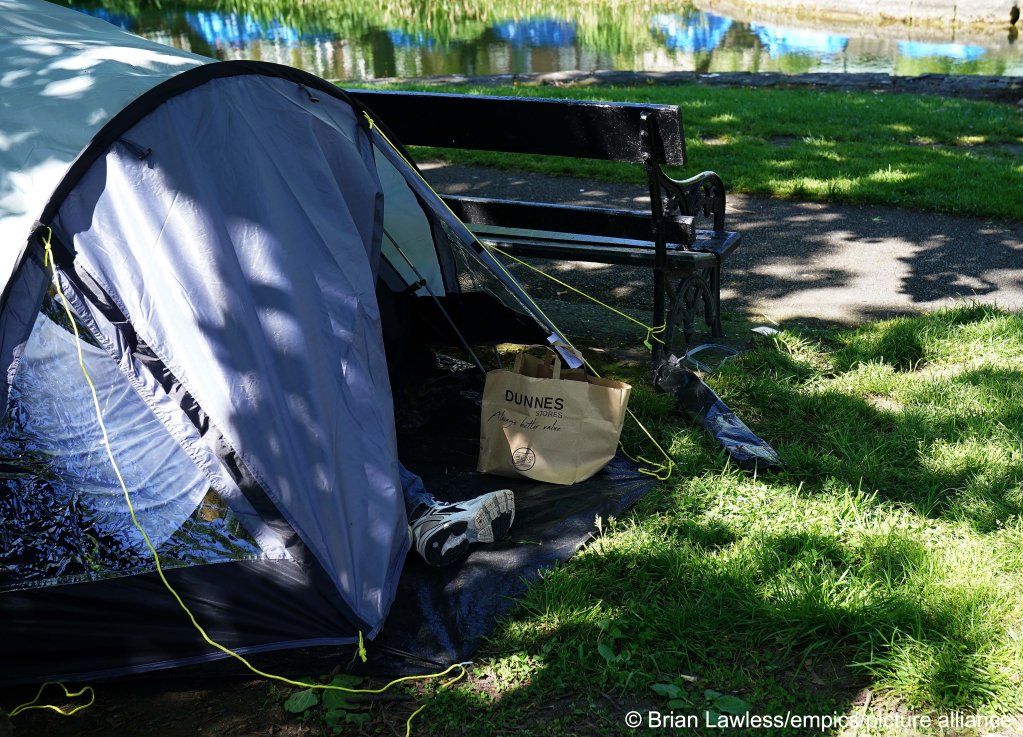
On May 1, the Irish authorities cleared the first camp, which had been home to around 200 migrants. They hosed the streets down and reportedly moved some of the migrants to other camps outside the city.
A statement from the government, reported the Irish Examiner, said that those outside the IPO offices had mostly been taken to more robust tented accommodation in Citywest and Crooksling, located southwest of Dublin.
But the clearance of one camp hasn’t changed the general lack of accommodation problem that Ireland is facing, for both migrants and its local residents alike.
'It's completely unacceptable'
James O’Connor, part of the ruling coalition and from the Conservative Republican party Fianna Fail, told Irish broadcaster RTE: "What’s happening on Grand Canal dock, and in Mount Street indeed, it’s completely unacceptable to me as a government TD," reported the Daily Mail.
O’Connor admitted there was a need for larger accommodation centers, saying the government should look at land around Dublin airport and in the border area with Northern Ireland.
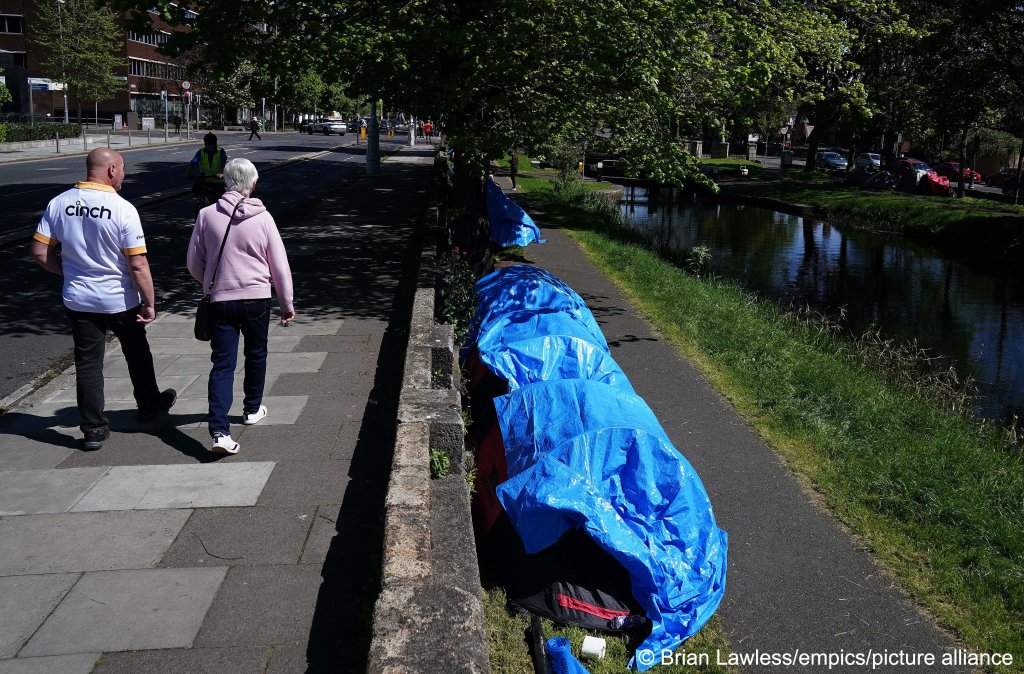
"There’s no shame in saying that, in providing appropriate accommodation," explained O’Connor. "Buying up hotels and B&Bs across the country for the purpose of providing asylum accommodation, in my view, is no longer appropriate and we’re seeing the increase in tensions – attacks on politicians’ homes, protests that are getting out of control in certain parts of the country, and this to me is a huge huge concern."
Migration become a UK-Irish issue
The Irish government has claimed that the numbers of migrants coming over the border from Northern Ireland -- a part of the UK -- into the Irish Republic have been increasing in the wake of the British government passing its Safety of Rwanda Act. The Irish government said migrants and asylum seekers were fleeing the UK for fear of being rounded up.
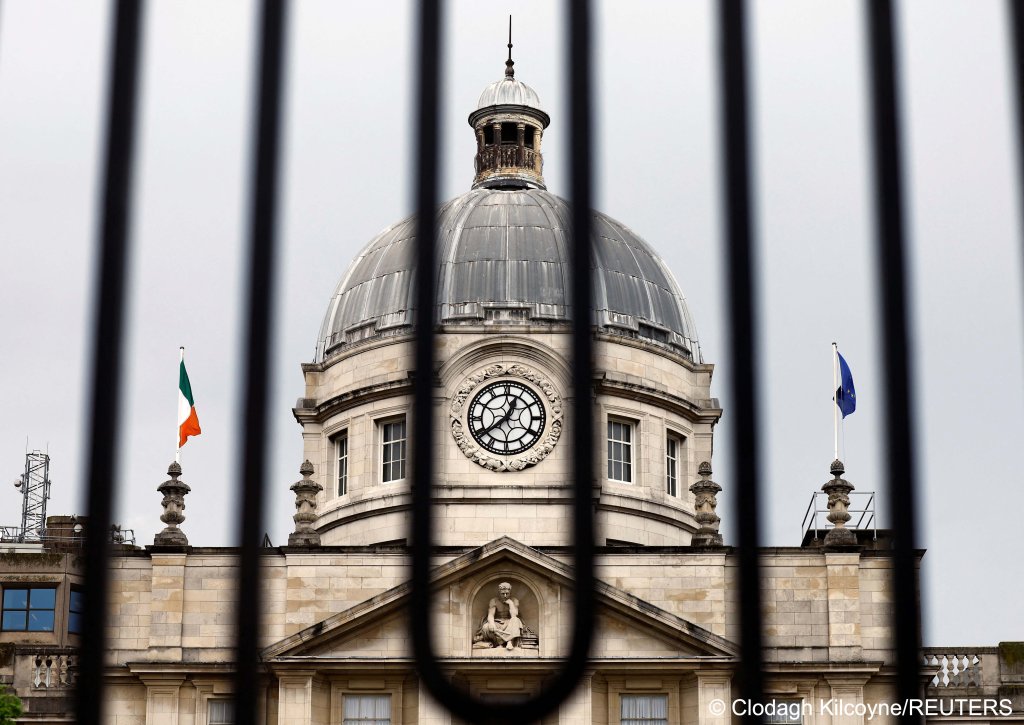
Last week, officials from the British and Irish governments met to talk about what could be done about this latest development. The Irish government promised to draw up a bill allowing them to return asylum seekers to the UK. British Prime Minister Rishi Sunak said Britain would not accept returns unless France also did.
Since Britain exited the European Union, it has not been able to take advantage of the so-called Dublin regulation, allowing for the return of asylum seekers to the first country of entry in the European Union.
However, although Ireland is part of Europe, the UK, Ireland, the Channel Islands and the Isle of Man have a Schengen-like free border arrangement between their territories. An agreement in 2020 provided for returns to take place between these territories but has not yet been deployed.
Police patrols at the border?
According to the Daily Mail, O’Connor is advocating placing police patrols at the border between Northern Ireland and the Republic to try and prevent more migrants from entering Ireland that way.
Placing police at the border, however, remains a historically contentious issue, and something the Irish government said last week it would not do.
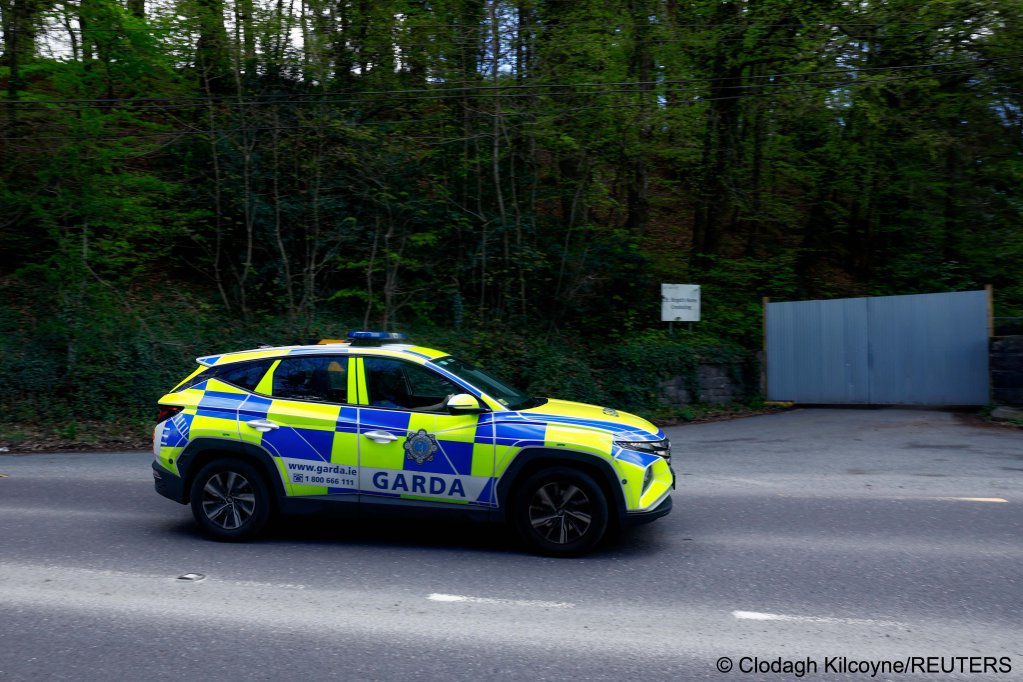
O’Connor asked rhetorically "What is the alternative? Are we going to leave it [the border] unpoliced and allow further encampments around cities in Ireland and towns in Ireland to increase?" reported the Daily Mail.
On Thursday, a day after the Irish authorities cleared the makeshift camp outside the IPO, there were reports that some homeless migrants pitched their tents in a private park in south Dublin. However, those tents were reported to have disappeared by Friday. Some reportedly returned to the IPO to ask for accommodation but were told there was none available for them.
'Makeshift encampments...are never the solution'
Ireland’s leader Taoiseach Simon Harris has said that "makeshift encampments…are never the solution." He added that it was not in anyone’s interest, because people in tents don’t have access to proper sanitation.
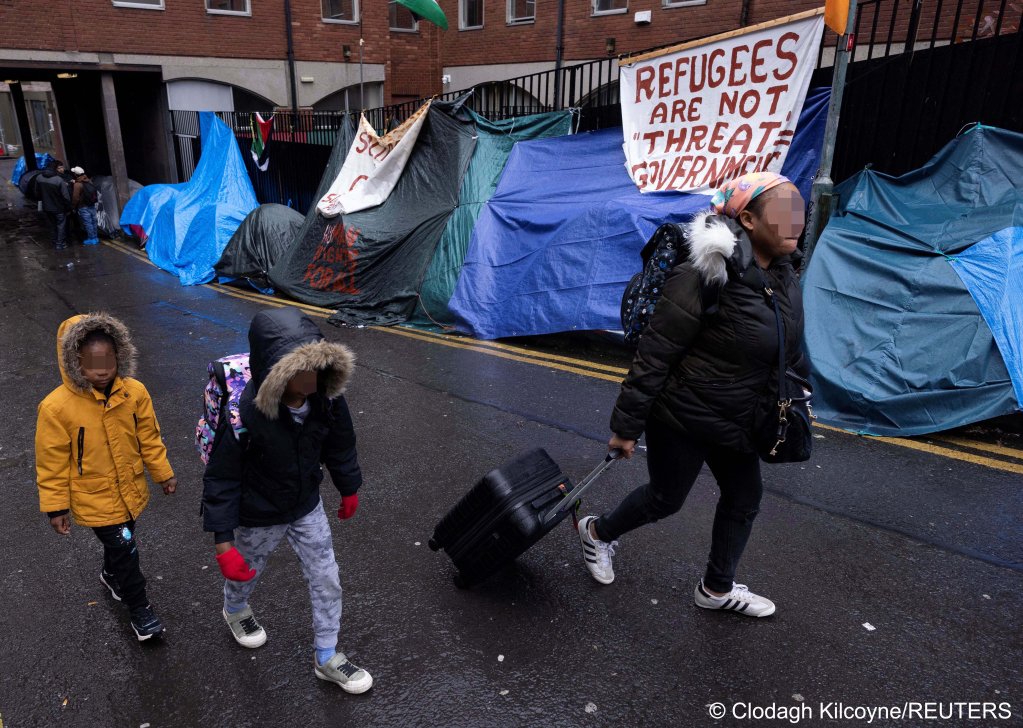
Harris explained that "accommodation isn’t always readily available, but we are keeping working at it day by day."
The Irish premier said that in his opinion migration wasn’t just about accommodation, because "no matter how much accommodation you have, if it’s just a conversation about accommodation, accommodation will fill."
He said the government needed to implement "faster processing times," and that it was more about having "efficient and effective systems," reported the Daily Mail.
Alternative facilities being considered
Harris has promised that makeshift encampments will not be present around Ireland. The Irish Times reported on Sunday that the government was now considering using Phoenix Park and Army barracks, as well as other state facilities as emergency alternatives to enable them to clear the Grand Canal camp too.
The newspaper added the government had "no immediate plans to remove the tents from the canal, though sources stressed that they could not stay there 'indefinitely…it won’t go on for months.'"
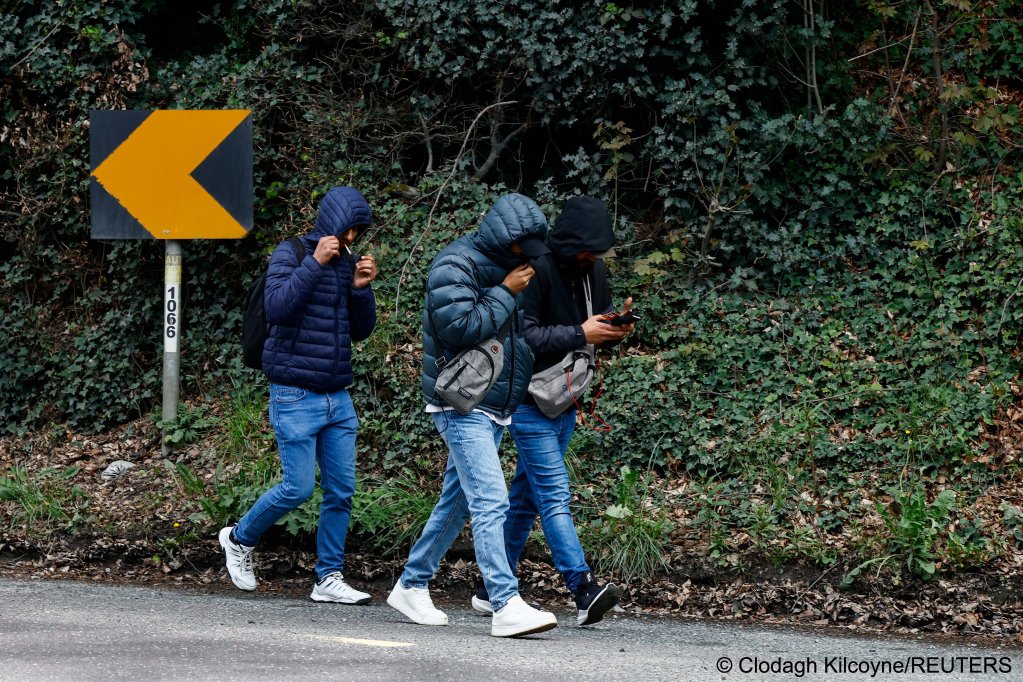
The BBC reported that some of those moved to alternative accommodation last week had already returned to Dublin city center, citing flooding and the isolation of the alternative sites as reasons for returning.
The Irish Refugee Council told the BBC they think there are about 1,800 homeless asylum seekers in Ireland at the moment, on top of about 14,000 Irish people without accommodation.
Safety fears
The government told the Irish Independent newspaper that they hoped the faster processing times would result in those asking for protection who qualify being granted it within 90 days, and those who do not qualify getting a quicker decision and instruction to leave.
Irish Labour Party member and TD Aodhan O'Riordain said he felt the government was busy "just firefighting all the time." O’Riordain added that he feared for the safety of men placed in tented accommodation, reported the Irish Independent.
"It is well known that these camps are not sustainable, yet when efforts are made to find accommodation in an area, you get local people objecting and people whipping up fear."
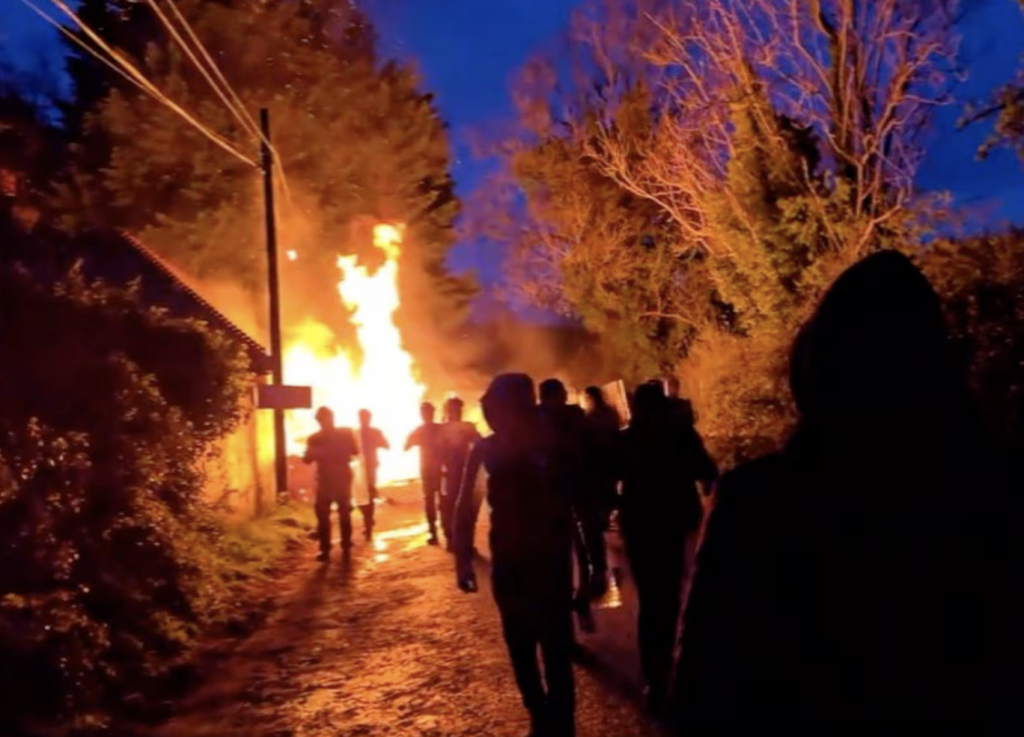
There have been a number of protests, fires and attacks in the last few years at sites the government had earmarked to house asylum seekers and migrants. Many of these protests have resulted in the sites not being used to accommodate migrants.
O’Riordain told the Irish Independent he felt the government was just "moving the problem from one area to another." Men staying at the camp told the Irish Independent they preferred to stay together in one place, because that way "they feel safer."
